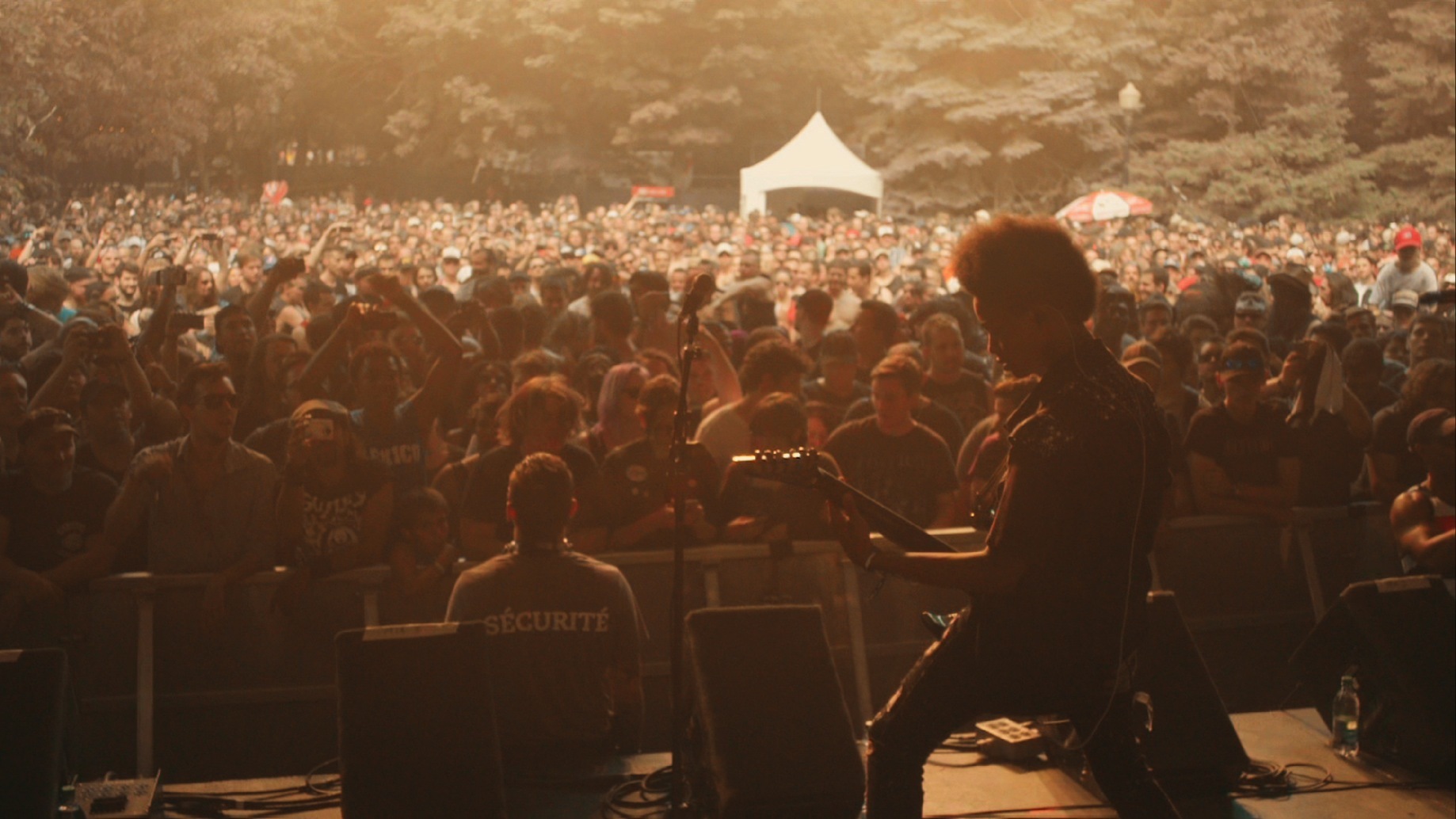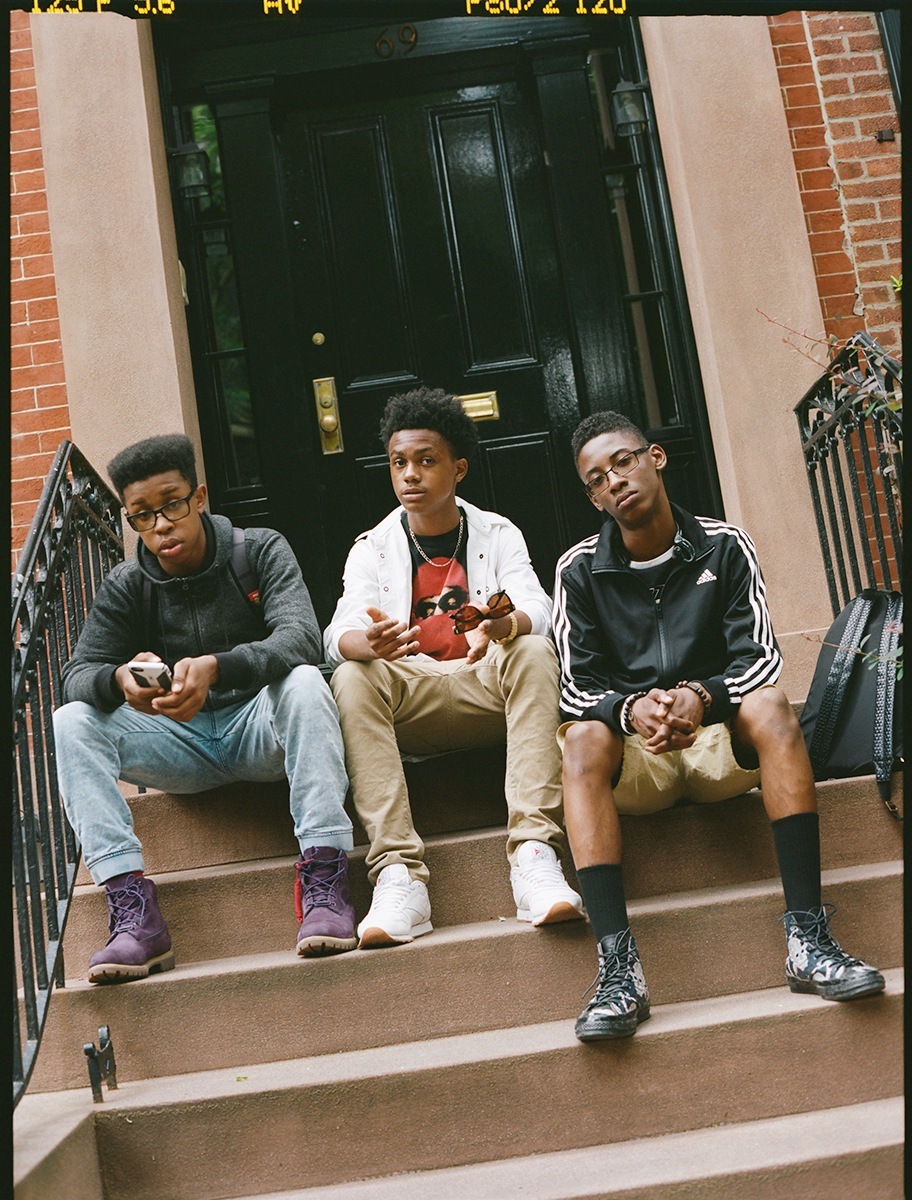“Record contracts are just like — I’m gonna say the word — slavery,” Prince told journalists last August. “I would tell any young artist…don’t sign.”
In boldly advocating for Jay-Z’s artist-friendly streaming service Tidal, The Purple One echoed the same sentiments he made exactly 20 years ago, during his nasty, turbulent split from Warner Brothers Records (the one that inspired him to change his name to a symbol). In the two decades since, countless other high profile ruptures have followed: think JoJo’s seven-year battle with Blackground, or Kesha’s ongoing Sony horror story. Imagining what goes on behind closed doors is becoming a cultural obsession, too: shows like Vinyl and Empire paint a world that’s fast-paced and high stakes. But what’s it really like being a bright young artist handed a multi-million dollar, multi-album record deal? And what’s it really like when things start to come undone? Breaking a Monster, a new documentary following Brooklyn speed metal band Unlocking the Truth, lays it all bare.
Back in 2013, videos of the Flatbush preteen trio — guitarist and vocalist Malcolm Brickhouse, bassist Alec Atkins, and drummer Jarad Dawkins — shredding sets on Times Square sidewalks went viral, attracting the attention of industry veteran Alan Sacks. Something of a youth oracle, Sacks is both the co-creator of Welcome Back Kotter (the 70s series that set John Travolta’s star in ascent) and the man who discovered the Jonas Brothers. Just months after signing on as Unlocking the Truth’s manager, he brokered the band’s six album, $1.8 million record deal with Sony Music, which made major headlines just as the boys began to book TEDxTeen talks, Coachella performances, and Verizon commercials. Everything seemed possible for the tight-knit troop — at least, that’s what an ever-expanding team of (significantly older, white) label execs, marketing consultants, and stylists kept telling them.
After making a short film on the fledgling band in 2014, director Luke Meyer kept his cameras rolling and followed Unlocking the Truth everywhere: from practice sessions in Brickhouse’s basement to the signing of that aforementioned contract (the actual economics of which, we find out, do not result in anything close to its dizzying seven figure sum) to meetings, meetings, and more meetings. They endured design proposals, debating which t-shirt graphics would appeal to both their speed metal base and Sacks’ tweens. They enrolled in vocal coaching at the behest of Sony, who all but forced Brickhouse to add lyrics to the band’s face-shredding instrumental solos.
“There were meetings that would be six hours long,” Dawkins says when we meet. “Kids don’t really have the attention span [for that]. We weren’t even teenagers — we were like thirteen — and we were in the beginning. So we didn’t really have the patience to deal with meetings. We had the patience to deal with the business, but not the foolishness.”
But as Myer’s footage shows, they certainly got their fair share of foolishness. In capturing the band’s increasing restlessness, frustration, and exasperation, Breaking a Monster unveils an unprecedented look at what major label deals are like for young, talented people. And the band stands by the film’s portrayal. “A lot of these shows like Empire don’t really give you an accurate representation,” says Dawkins, “but what you see in our documentary is 100% real. It’s exactly what it’s like. It’s not staged, nothing. They didn’t edit anything out. It’s all there.”
It’s all there — except the actual music. The only meetings Unlocking the Truth didn’t seem to be having were about making their record, a point then pint-sized Brickhouse took eccentric grandpa Sacks to task about repeatedly. Their album seems to be perpetually postponed to continue, as one exec said, “building the brand.” So when Breaking a Monster premiered at SXSW last year, the band made even more waves when they announced they’d finally severed ties with Sony.

Their long overdue debut record Chaos dropped last week. “There’s about six songs on the album that were recorded that were from the Sony sessions, but we just re-recorded them, and then we made five new ones. So it’s a total of eleven tracks,” Brickhouse explains. “We’re trying to work on a tour to support the new album,” Atkins adds, “now when people say, ‘Oh I saw you guys live, have you got any new music?” we can tell them, ‘Sure it’s at the merch table!’ We can finally say that.”
But as much as Breaking a Monster is a major label cautionary tale, it’s also a valuable coming-of-age story. Unlocking the Truth shot to fame rapidly, before its members even entered high school. While the film makes clear that 13-year-old boys shouldn’t necessarily be expected to sit still through six hour meetings with marketing heads, it also presents a portrait of emotionally intelligent young people who care deeply about their families, their community, and their art. So how did they make it through all that bullshit? “We just talked about things, and how we felt. When you know you have people to understand you, you feel better about the situation. Knowing that you’re not alone in the stuff you have to deal with,” says Dawkins, who’s known Brickhouse and Atkins since preschool. “We’re like brothers, we’re that close,” Atkins adds. “We’ll always support each other.”
‘Breaking a Monster’ premieres today at New York’s Sunshine Cinema. Unlocking the Truth’s debut album, ‘Chaos,’ is available now.
Credits
Text Emily Manning
Photography Eric Chakeen
